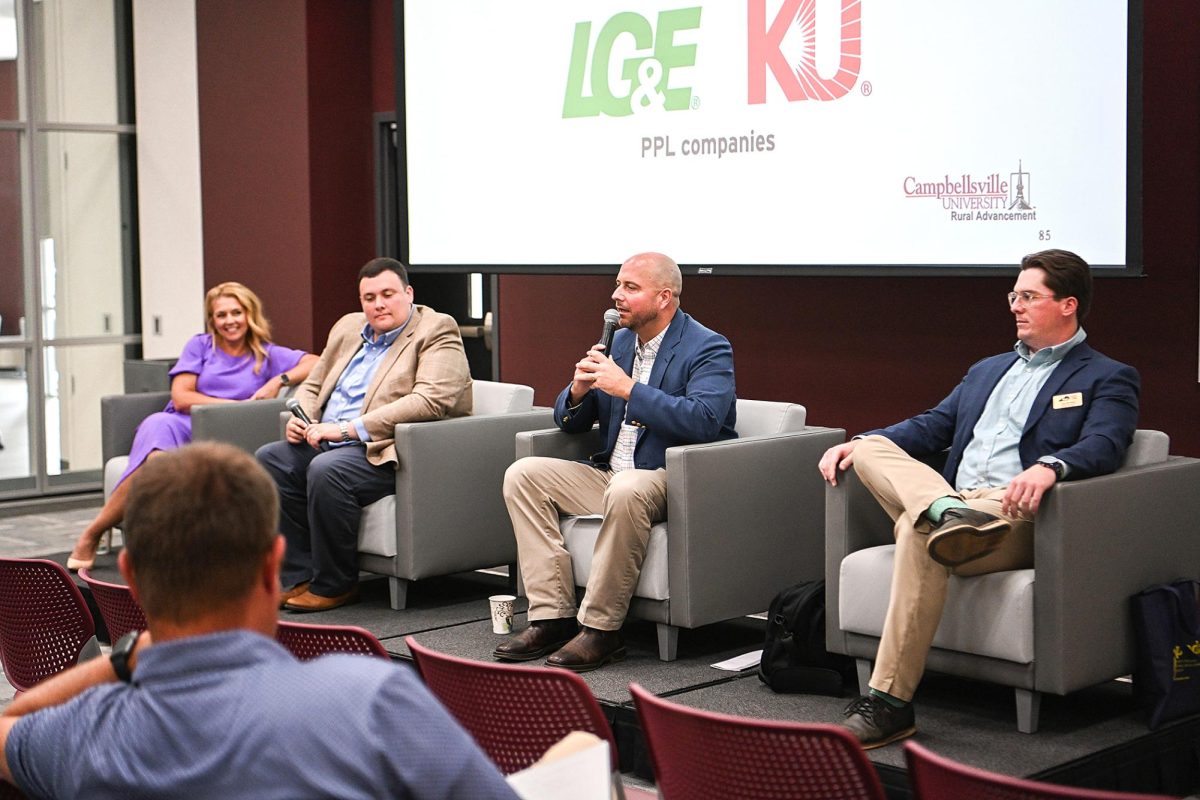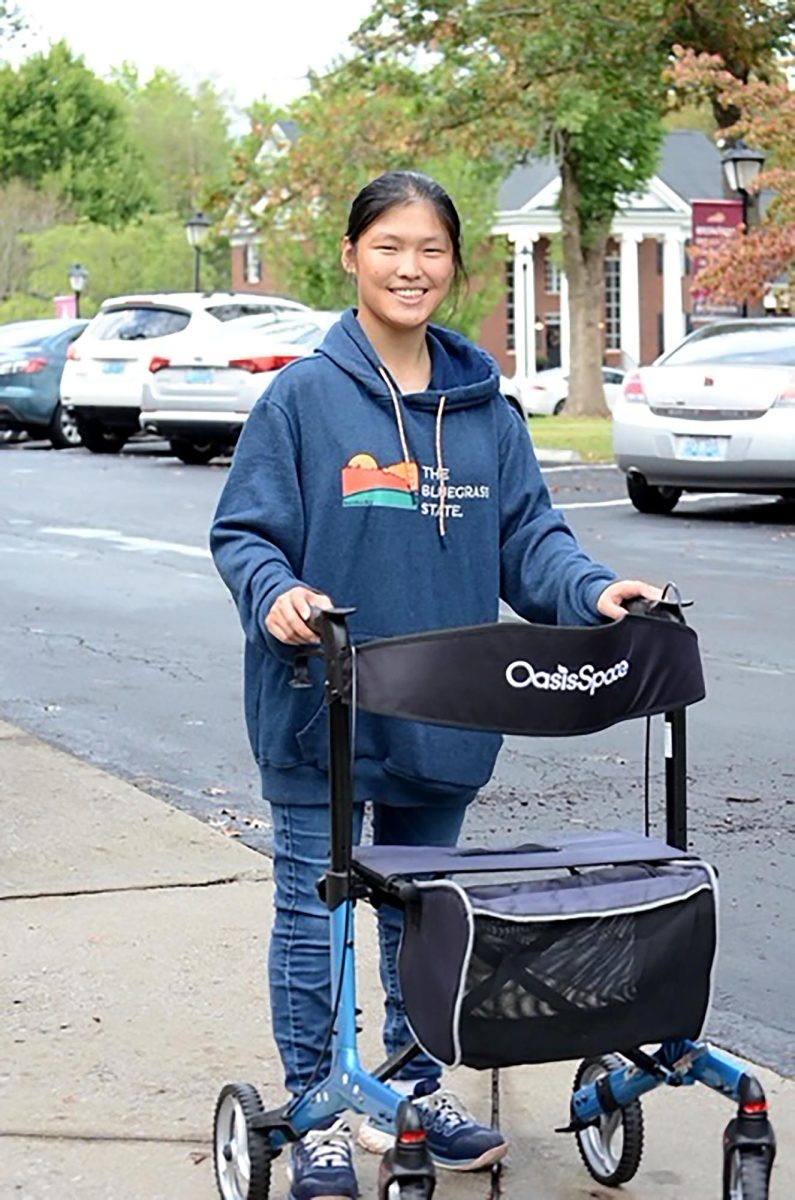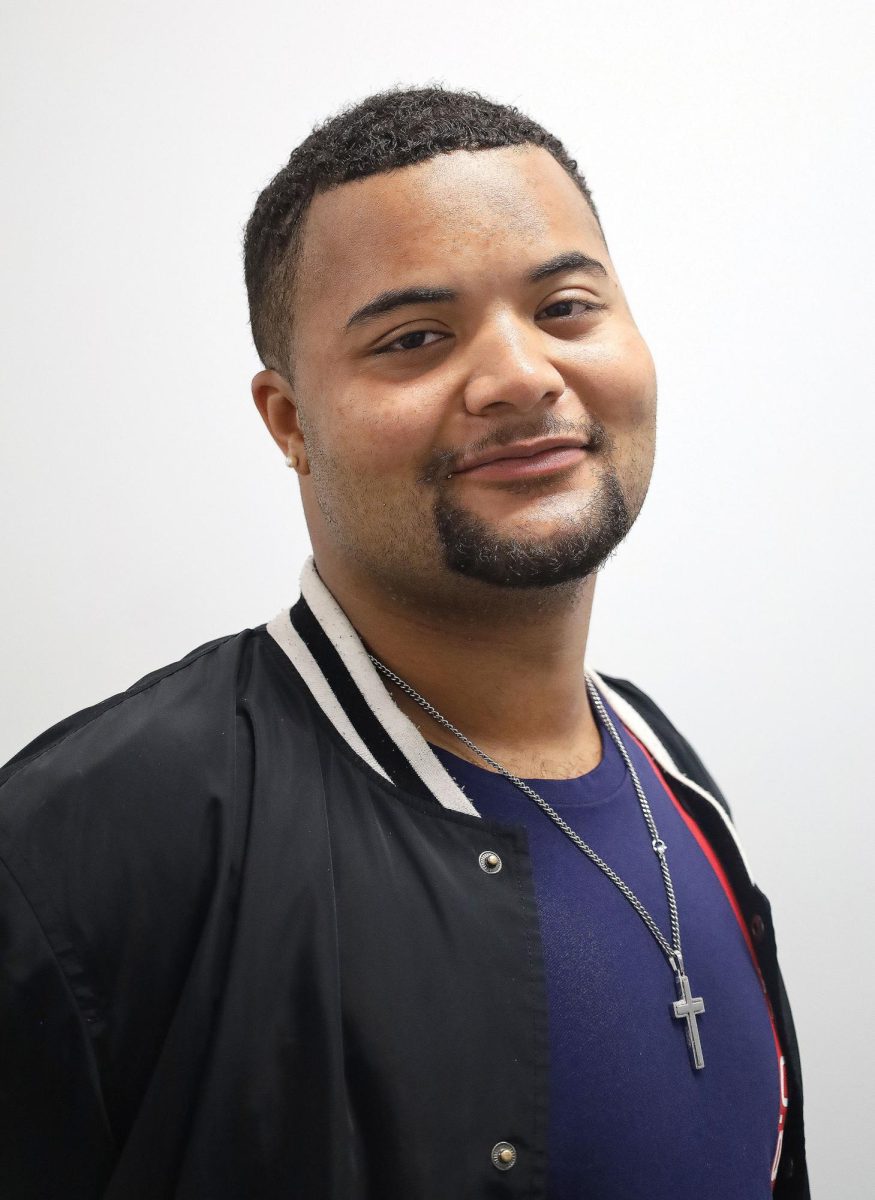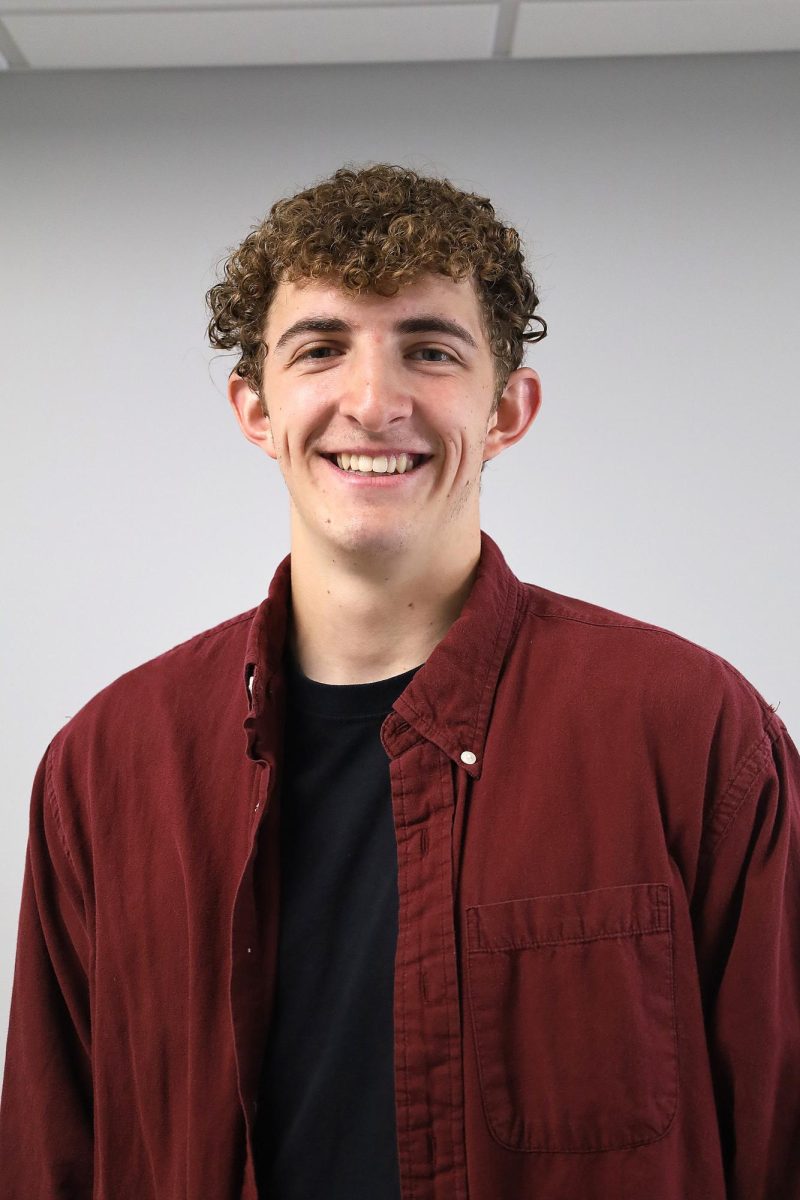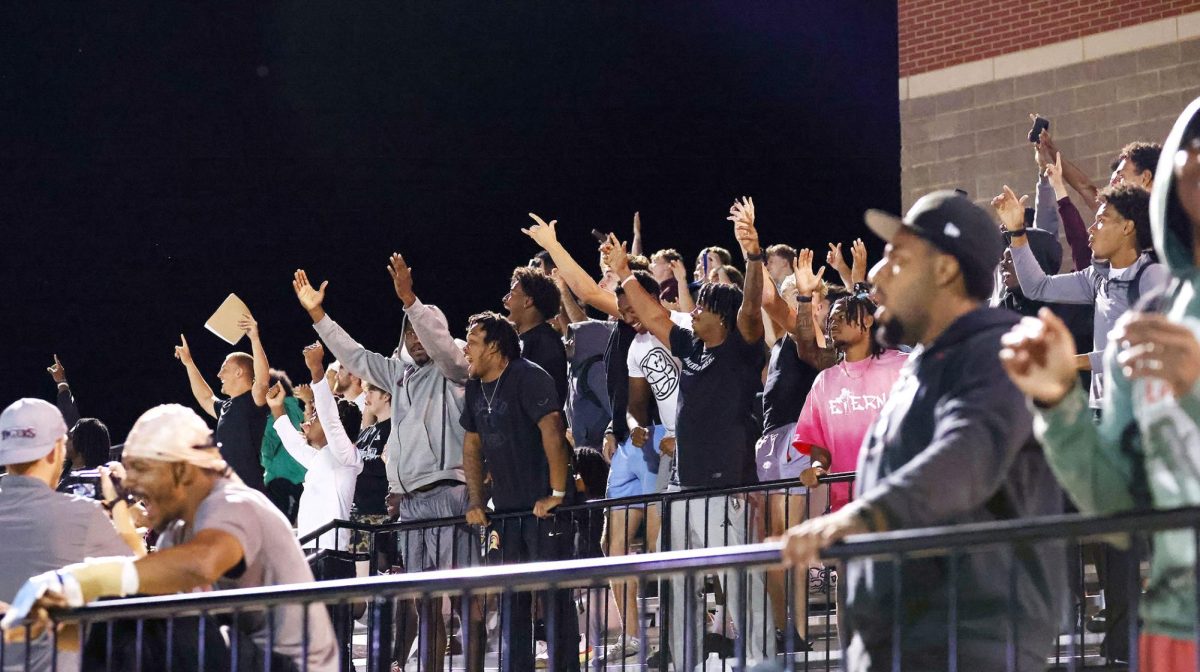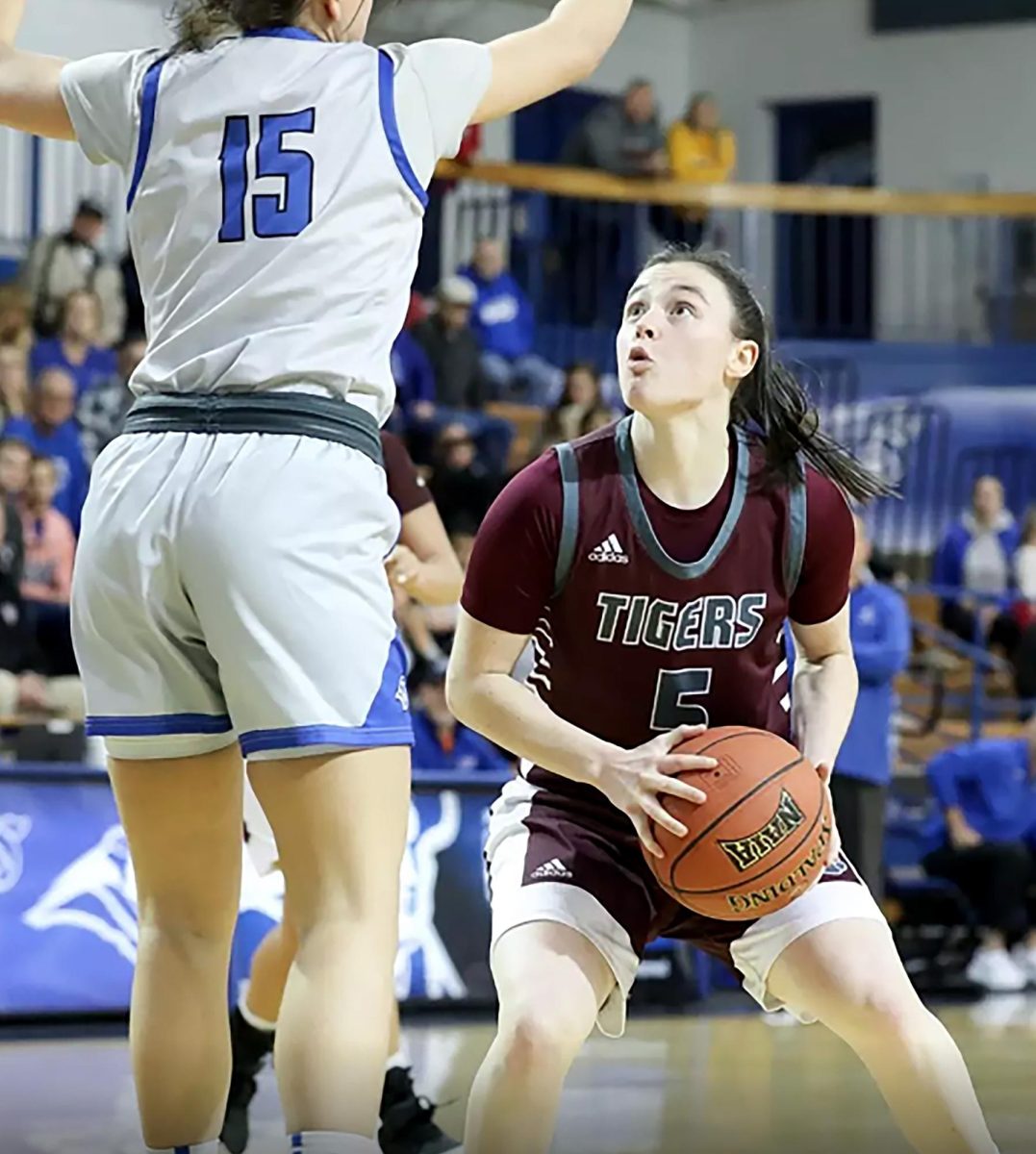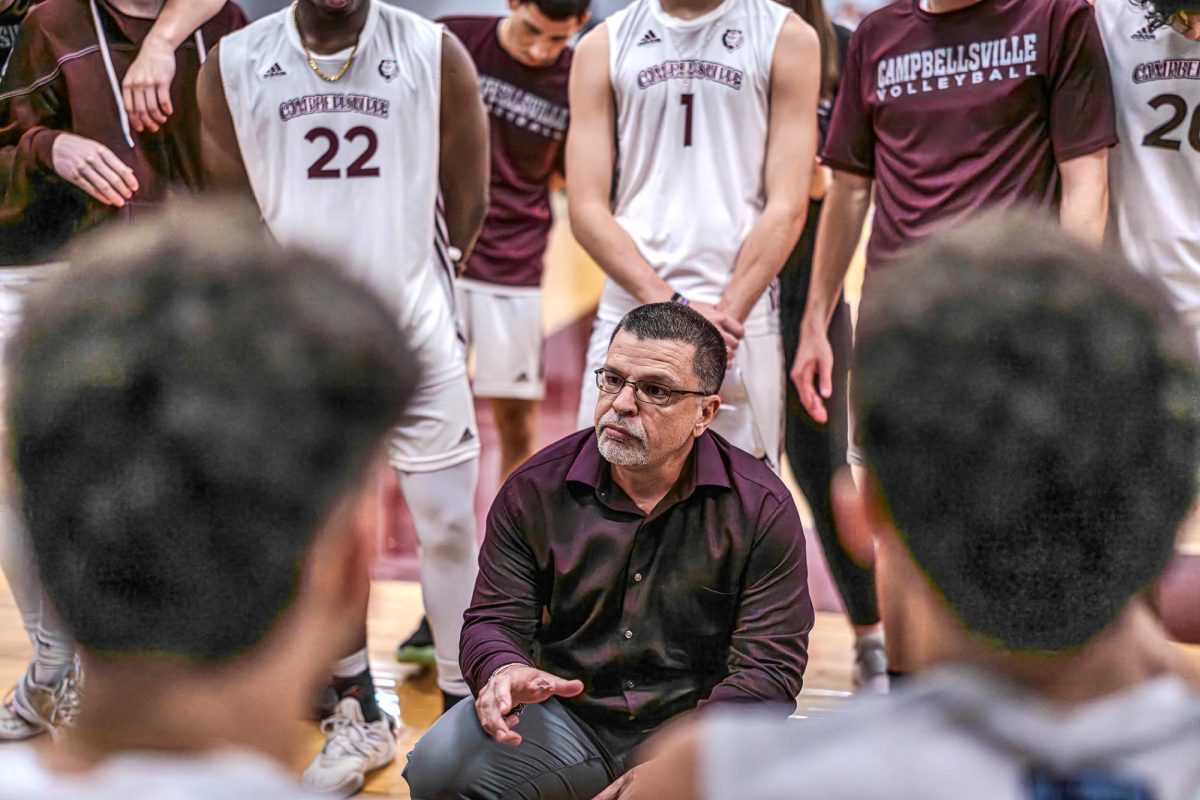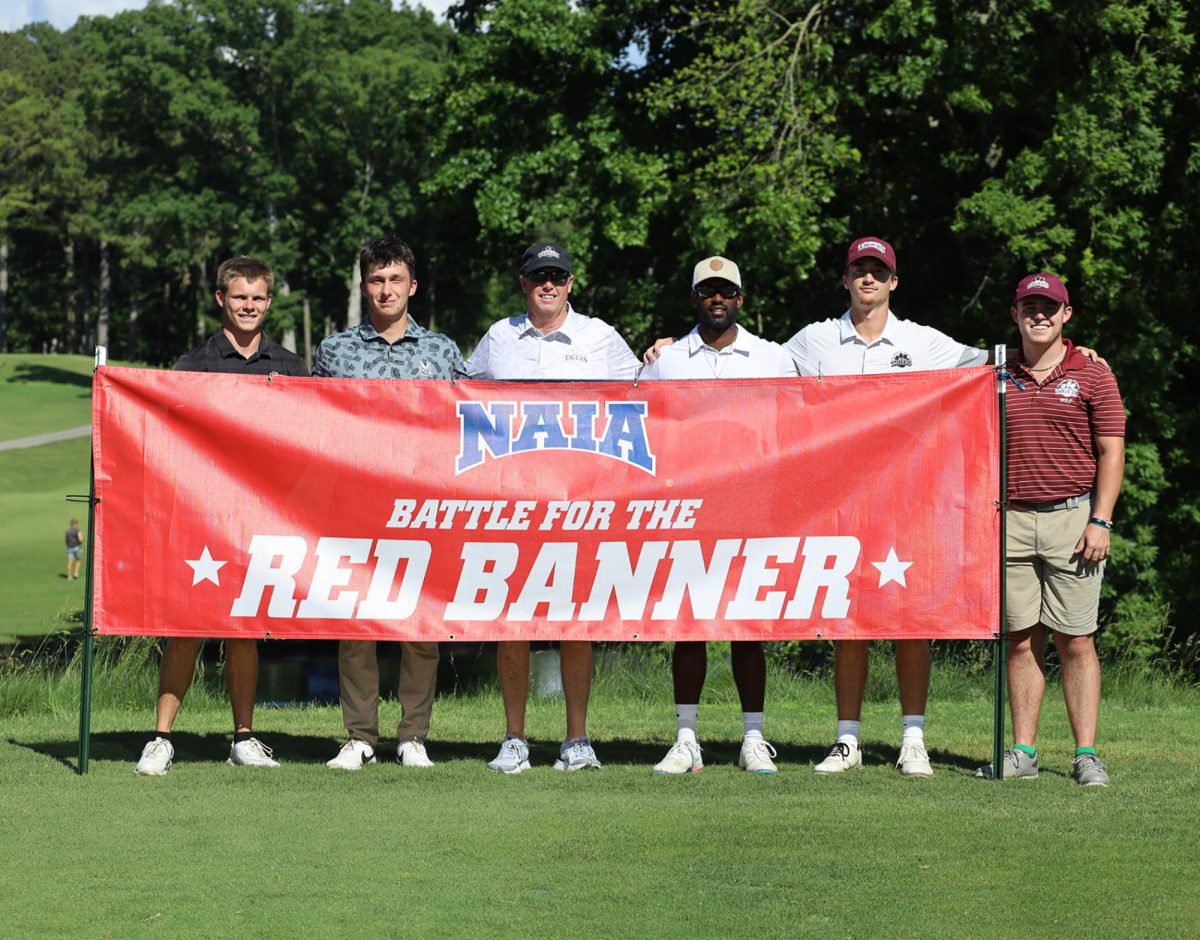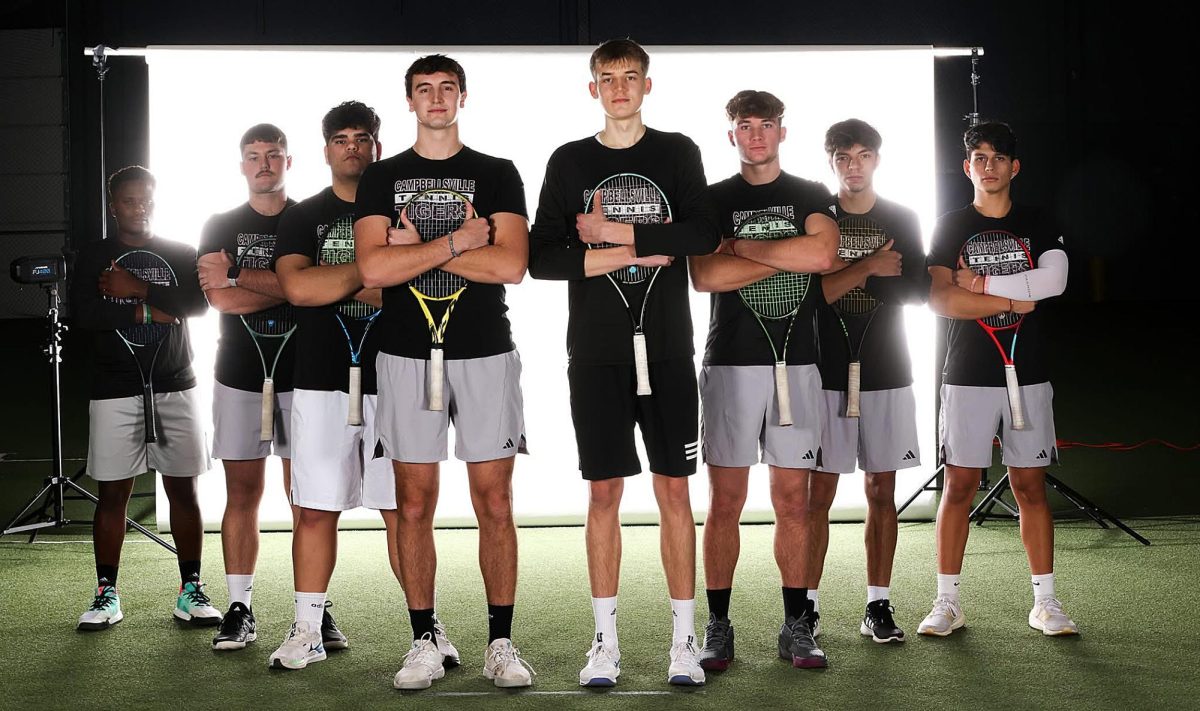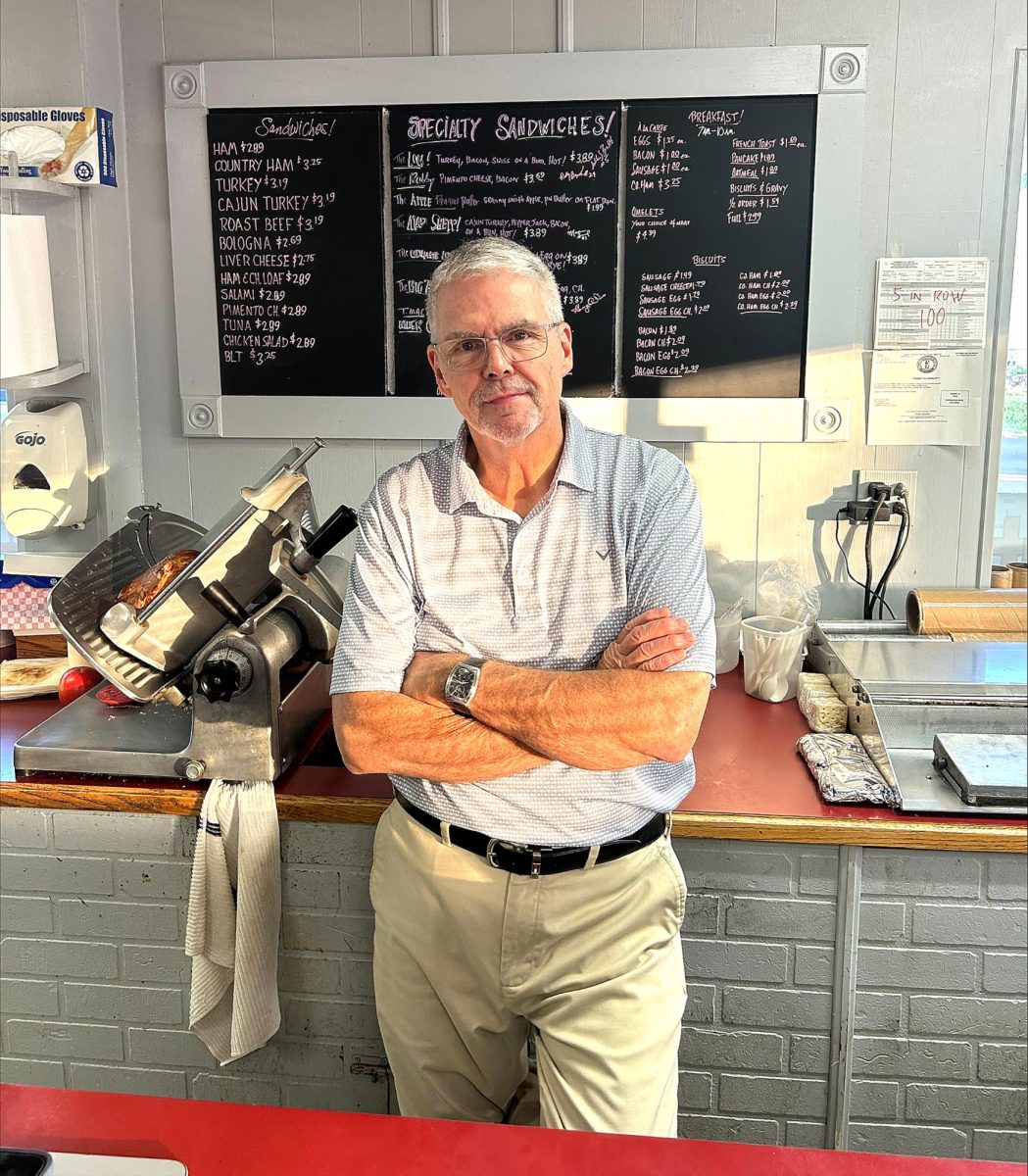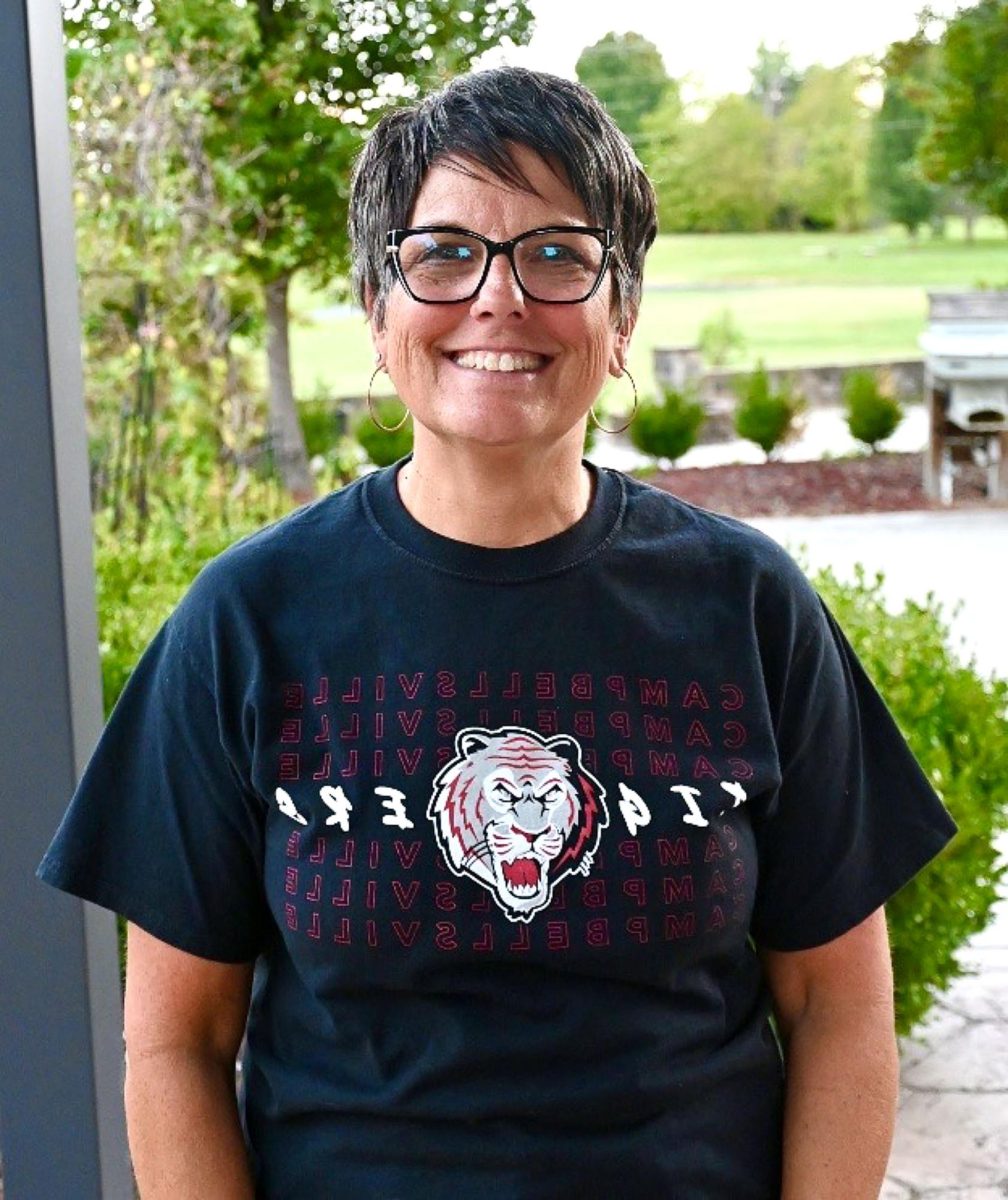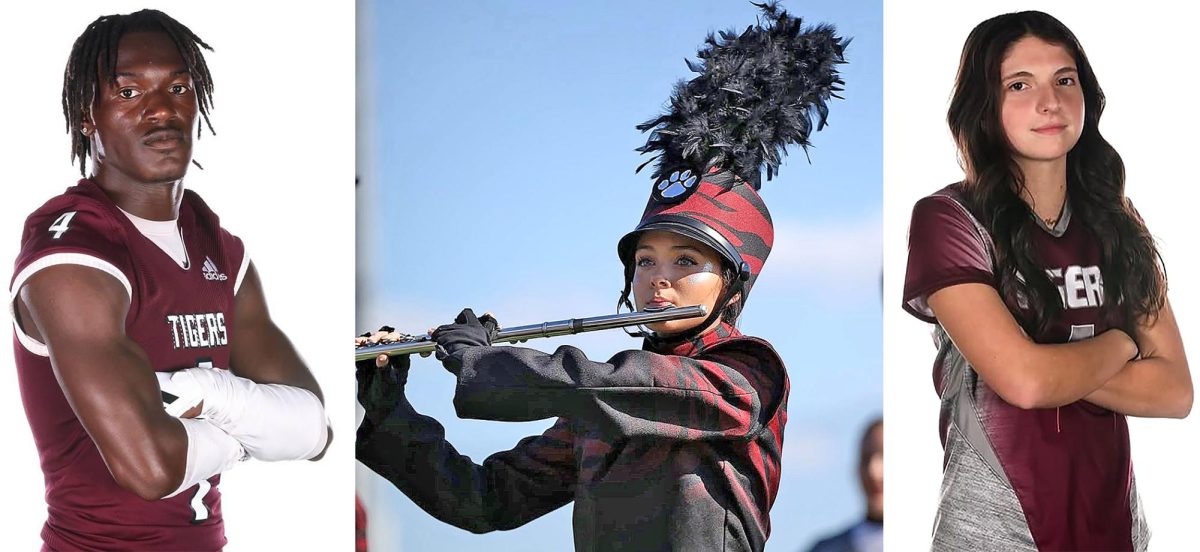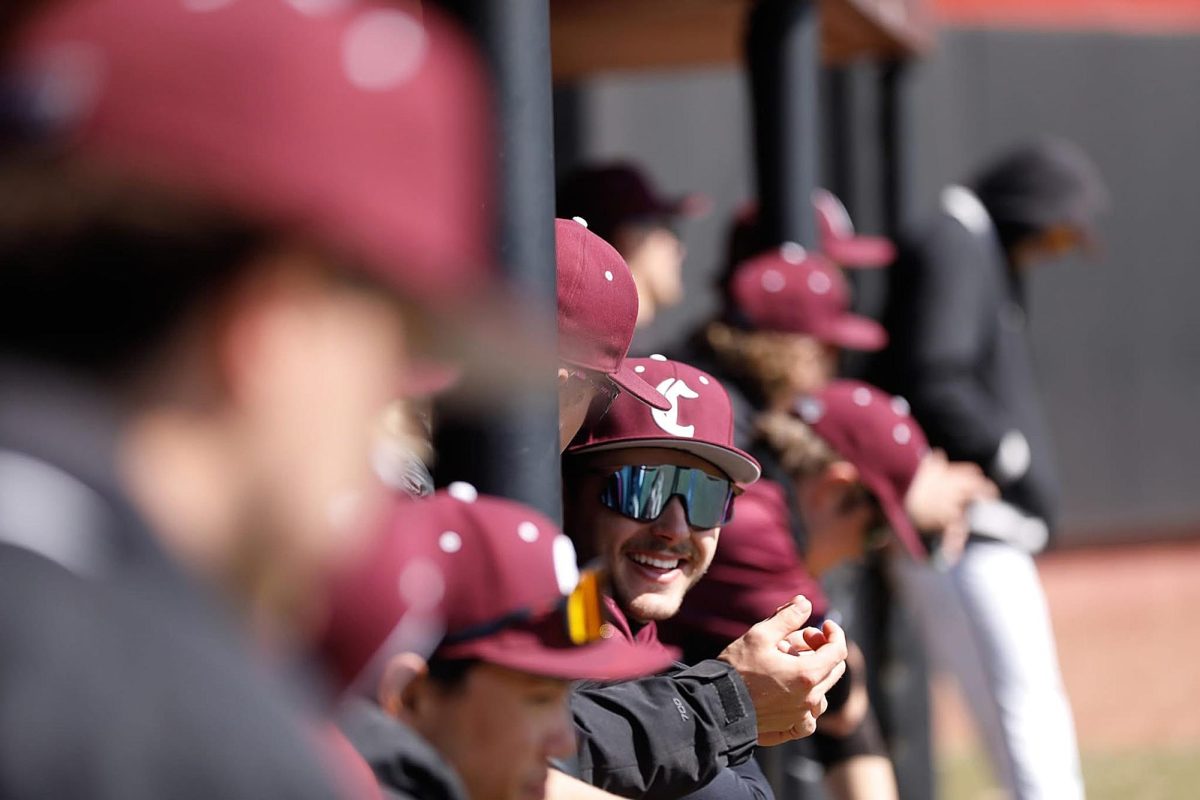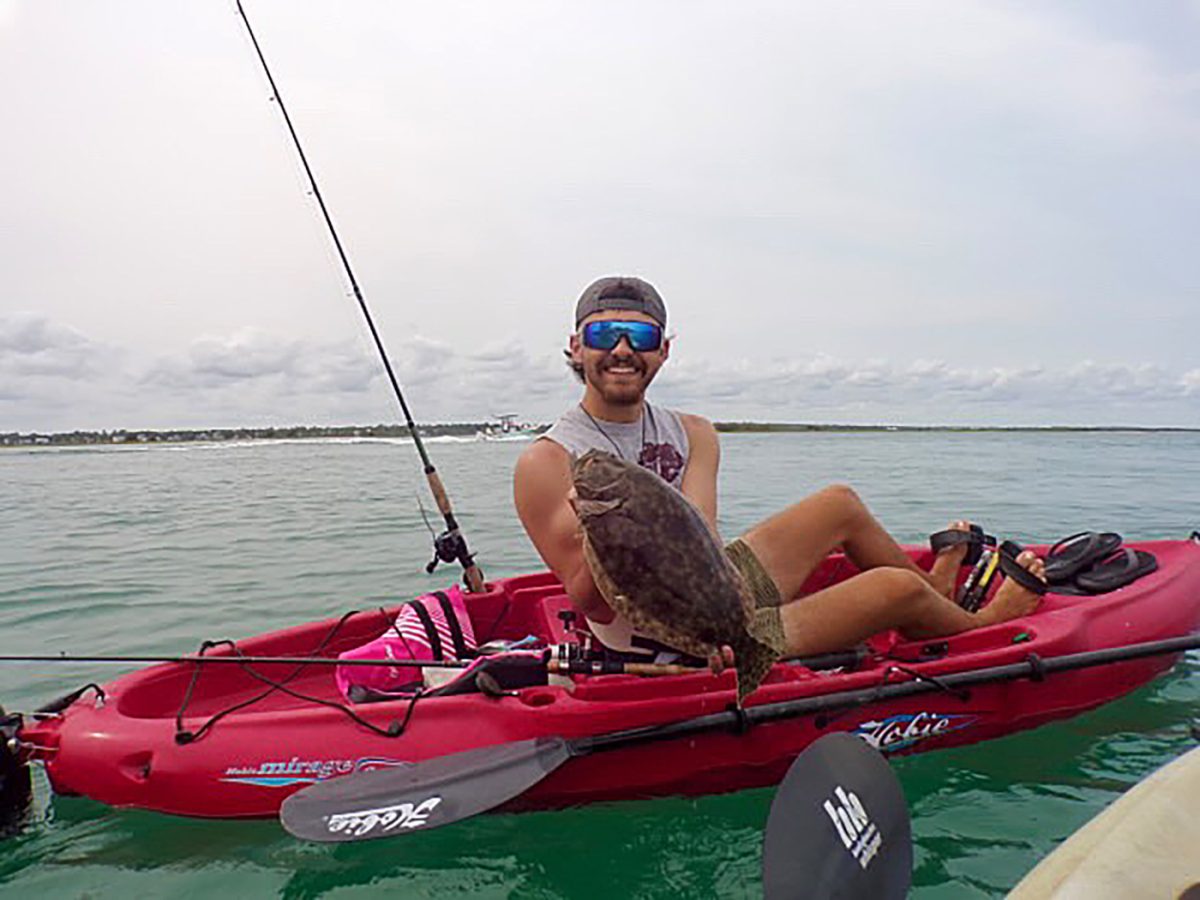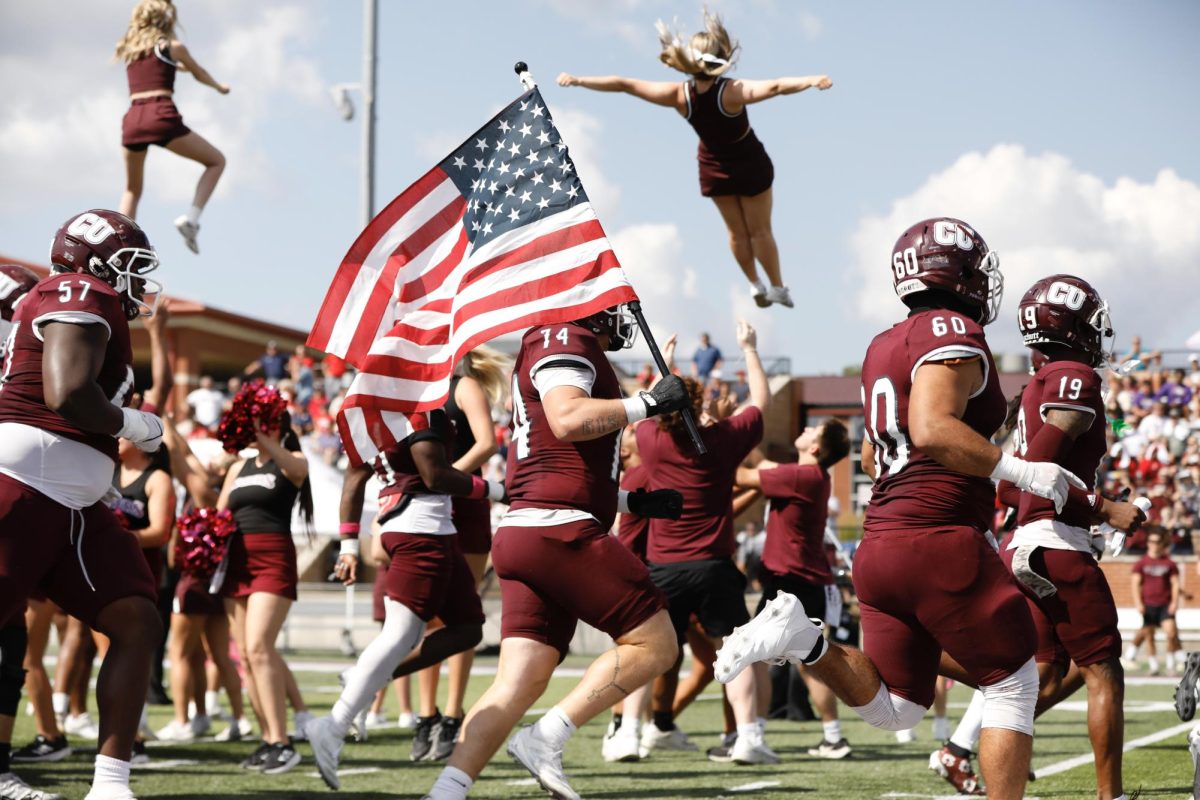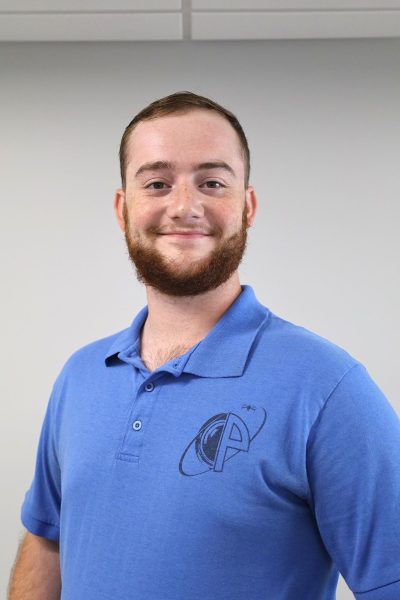Most university presidents spend their afternoons in meetings, signing documents or answering emails. Campbellsville’s President Dr. Joseph Hopkins, however, spends his in the practice room, teaching scales and arpeggios and helping students master the complexities of their music. Hopkins is balancing his role as president with teaching voice lessons to three select students in the CU School of Music.
“[Music is] a way to connect with people,” Hopkins said. “For me, the passion was more about teaching than it was about performing…That was my love. I wanted to be in college for the rest of my life.”
Dr. Tony Cunha, dean of the School of Music, is honored to have the president walking his halls throughout the day.
“Not many schools have the privilege of having the president teaching any subject matter,” Cunha said. “This speaks volumes of his desire to be with students in an area that he’s also an expert.”
Cunha recalled how Hopkins first approached him last spring, expressing interest in the idea of teaching again.
“He mentioned to me his desire to perhaps teach some voice students,” Cunha said. “At that point it was just a thought, but later he confirmed he would have the time. Of course I told him it would be wonderful to have him.”
Since then, his presence in the music building has become a regular sight.
“He comes to the building on a regular basis…He stays in the classroom or here in the studio to teach,” Cunha said. “It impacts the entire building.”
Cunha sings high praises of Hopkins’ abilities and excitement to teach. Cunha was reminded of a moment one afternoon when Hopkins asked him to step into his office mid-lesson to show him the progress Hopkins and his student were making.
“He said, ‘Tony, come over here. I want you to hear this. Look at what he’s doing.’ And he was asking his student to do a technical component of the singing,” Cunha said. “[He was] excited about something he was teaching a student.”
While Cunha sees the president’s teaching as a rare privilege for the School of Music, students like junior music education student Margalo Stanton are the ones experiencing that privilege firsthand. When Stanton first found out she had been selected to be one of the very few students under the president’s direction, she was a little nervous.
“I thought I needed to show up in a suit and tie to my lessons,” said Stanton. “I cried I was so nervous.”
While Stanton was incredibly nervous at first, she began to warm up immediately as she began her lessons with Hopkins.
“He’s really friendly,” she said. “He always starts by asking me how I’m doing and how my day is going.”
As the semester went on, what stood out most to Stanton wasn’t his title as president, but his abilities as a teacher and musician.
“He’s very dramatic. He loves the acting aspect and little gestures that really make a piece interesting and bring it to life,” Stanton said. “He also just cares a lot about what I think and my interpretation of things.”
She said his lessons are a mix of encouragement and challenge, pushing her to strengthen her skills and encouraging her every step of the way.
“Aside from being the president, he is very, very talented… but he’s such a good teacher and mentor,” she said.
Stanton said the experience has also changed how she views leadership on campus.
“It really goes to show that even somebody at that high of a level can come and teach and be that mentor and isn’t just up on that pedestal,” she said.
For Hopkins, returning to the classroom wasn’t about making a statement, it was about helping where help was needed. After several positions in the School of Music opened up, the department was running thin on vocal coaches, and Hopkins wanted to help wherever he could.
“There was a need in the School of Music for voice teaching and so I just offered that I would contribute what time I could,” Hopkins said. “My wife is doing the same in the theater area. It’s just helping because there was a need.”
Even though Hopkins stepped in to fill a need, music has always been a passion for Hopkins, and stepping back into the classroom has brought his passion back to life.
“It’s fun just to be in that creative space of designing and building these opportunities for future students,” Hopkins said.
Hopkins said that even while he enjoyed performing, teaching was always what he enjoyed most.
“The passion was more about teaching than performing,” Hopkins said. “I was ready to move on from the professional [music] career and get back to teaching as fast as I could. That was my love.”
With Hopkins’ added responsibilities in the classroom, balancing the two roles hasn’t been difficult, with travel being the only real disruption.
“We can work the schedule, but next week I’ll be out of the country and so the students have been gracious in being flexible,” Hopkins said.
While administrative work can be intense, Hopkins doesn’t find the addition of teaching music an additional stressor. Hopkins said teaching even gives him a new perspective on the university’s mission.
“Well, I think that [music] is the recharge,” Hopkins said. “Music is the recharge. It’s the break from the intensity of the administrative work. And it’s also the reminder of this is why we do this is because of the students.”
He added that staying connected to students, whether in the studio, the classroom, or on campus is what makes the work meaningful.
“I think the important thing is finding some way to stay connected to students,” Hopkins said. “That’s the fun part.”
The hours Hopkins spends teaching may not seem like a lot, but they’ve become a favorite part of his week. Lessons are a place where the presidential responsibilities fade, and the focus shifts back to his passion.
“I think it’s important to know where your passions are,” Hopkins said, “and to make sure that you weave those into your work, no matter where you land.”
